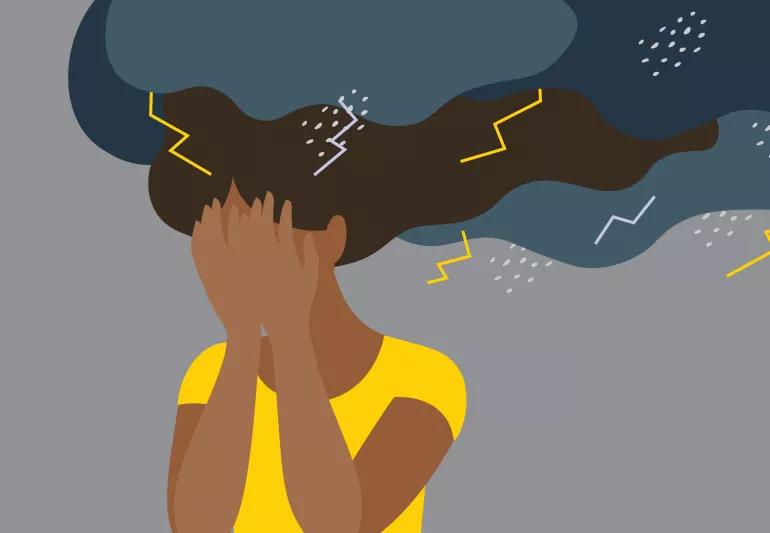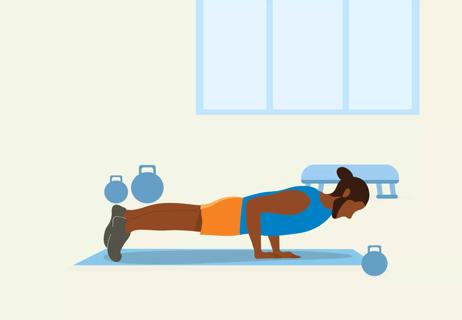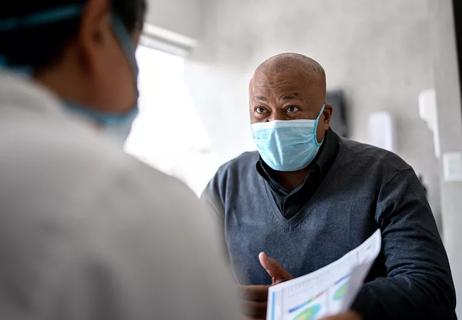Symptoms are subtle, but could include a reduced libido and mood swings

Everyone has testosterone. In women, testosterone only accounts for a small amount of their hormones, but it plays a critical role while contributing to:
Advertisement
Cleveland Clinic is a non-profit academic medical center. Advertising on our site helps support our mission. We do not endorse non-Cleveland Clinic products or services. Policy
Testosterone is an androgen (sex hormone) produced in your ovaries and adrenal glands. Low testosterone levels can affect your mood, libido and musculoskeletal health.
But low testosterone in women often doesn’t get much attention.
“You may have symptoms of low testosterone and low testosterone levels in your blood, but there is no defined ‘low testosterone syndrome’ in women,” says endocrinologist Divya Yogi-Morren, MD. “It’s something that’s hotly debated in the fields of endocrinology and general medicine, and has been for decades.”
But even if your low testosterone isn’t identified as a syndrome, the symptoms are real and sometimes treatable. Dr. Yogi-Morren explains what you need to know.
Video content: This video is available to watch online.
View video online (https://cdnapisec.kaltura.com/p/2207941/sp/220794100/playManifest/entryId/1_drbr9hes/flavorId/1_5f3sgelj/format/url/protocol/https/a.mp4)
Testosterone plays key roles in women's health, and low levels may cause fatigue, brain fog and low libido.
Symptoms of low testosterone can be subtle, Dr. Yogi-Morren says. But that doesn’t mean they should be left untreated.
Here are some common signs that you may have low testosterone:
The most common symptom of low testosterone is sexual dysfunction, which can include:
Advertisement
If you’re experiencing signs of sexual dysfunction, Dr. Yogi-Morren urges bringing up the issue to your healthcare provider. Low libido can also indicate a chronic condition like diabetes or a thyroid disorder. Your provider will want to rule out other conditions to make sure you get the best treatment for your symptoms.
“Low libido is not something people are always comfortable talking about, even though low sexual desire is common among women,” Dr. Yogi-Morren recognizes. “And when people do talk about it, their provider may refer them to mental health counseling instead of also looking at physical causes. But low testosterone and other hormones play an important role in libido and need to be fully evaluated.”
Low testosterone can cause vague symptoms that mimic mental health conditions. Mental health distress can also stem from the sexual dysfunction that comes along with low testosterone levels.
When testosterone levels are low, you may feel:
Sexual dysfunction and mental health issues are the two most common symptoms of low testosterone in women. But they aren’t the only signs.
Research shows that testosterone may help protect your brain from cognitive decline and the development of dementia. When levels are low, it may cause a feeling of brain fog.
“While it’s not a very common symptom of low testosterone, some people do find it harder to focus or concentrate,” Dr. Yogi-Morren notes.
Other less common signs of low testosterone include:
Knowing the cause of low testosterone may reveal options for treatment. Testosterone levels can decline because of:
Before menopause, women produce three times as much testosterone as estrogen. Age is the most common cause of low testosterone. Testosterone production, like estrogen, naturally decreases with age, gradually declining from the time of your first period to the time you go through menopause.
By the time you’re 40, your androgens have likely decreased by half. After menopause, Dr. Yogi-Morren says that your testosterone levels stabilize.
Your body produces most of its testosterone in two places: Your adrenal glands and ovaries. But some people need to have their ovaries removed to treat a disease or reduce their cancer risk during a bilateral oophorectomy.
“Whenever you remove the ovaries,” Dr. Yogi-Morren explains, “you remove one of your body’s testosterone factories. As a result, you’ll have lower-than-normal testosterone levels from that point forward.”
Advertisement
Like your ovaries, your adrenal glands are a chief producer of testosterone (and other hormones). When you have adrenal insufficiency, your glands don’t make enough of some hormones, including testosterone.
Adrenal insufficiency can happen because of an autoimmune disease or after suddenly stopping steroid medication.
Your pituitary gland is a pea-sized gland located at the base of your brain, and it produces the hormones that tell other glands in your body to do their jobs. When your pituitary gland doesn’t work right, it interferes with many of the glands it controls. One of those glands is your adrenal gland, which makes testosterone.
“Hypopituitarism is a rare condition that involves an underactive pituitary gland,” Dr. Yogi-Morren further explains. “And it’s linked to low testosterone. The adrenal glands can’t do their job when the pituitary gland doesn’t release the right hormones in the correct amounts.”
Low testosterone can be a side effect of certain medications like:
“Any medication that contains estrogen, even the low doses used for hormone replacement therapy post-menopause, can cause lowered testosterone levels,” Dr. Yogi-Morren says. “If you’re having symptoms of low testosterone and taking medication containing estrogen, it could be the cause.”
Advertisement
Low testosterone can be challenging to diagnose in women. The symptoms often go undiagnosed or are misdiagnosed because they mimic other conditions like:
Healthcare providers can use a blood test to measure the amount of androgen hormones in your blood. But changing hormone levels can make it difficult to accurately identify an androgen deficiency. The normal range for testosterone in women is 15 to 70 ng/dL, but where you fall within that range may depend on your age and other health factors.
Currently, there aren’t any testosterone replacement therapies approved by the U.S. Food and Drug Administration (FDA) for treating women.
“Testosterone treatments might get the response you want, such as an increase in sexual desire,” Dr. Yogi-Morren reports. “But there are side effects, such as increased acne, hair growth and mood disorders. Remember, data on the safety and efficacy of testosterone treatment for women is very limited. There is no data on long-term use.”
The most effective way to treat low testosterone is to identify and treat the cause. But causes like aging aren’t treatable. When providers can’t treat the cause, they shift the focus to treating the symptoms:
Advertisement
“Low testosterone won’t usually cause significant consequences as long as your other hormones, specifically the other androgens, are within the normal range,” Dr. Yogi-Morren states. “But make sure you follow all the age-recommended guidelines for preventive health — especially getting bone density tests and screening for osteoporosis, since testosterone plays a big role in bone health.”
Learn more about our editorial process.
Advertisement

Testosterone therapy may be an option for women to help address low libido

Vasectomies and masturbation don't lower your testosterone levels

Low testosterone levels can mimic symptoms of depression and cause anxiety over time

Lifestyle choices are often a contributing factor for low-T

Low T can decrease fertility, but there is hope

Over-the-counter supplements aren’t the answer

It’s important to angle it toward your rectum or back, along the natural curve of your vaginal canal

To help manage symptoms, switch to more absorbent period products, make healthy lifestyle changes and explore treatment options

Wearing a scarf, adjusting your outdoor activities and following your asthma treatment plan can help limit breathing problems

Your diet in the weeks, days and hours ahead of your race can power you to the finish line

When someone guilt trips you, they’re using emotionally manipulative behavior to try to get you to act a certain way